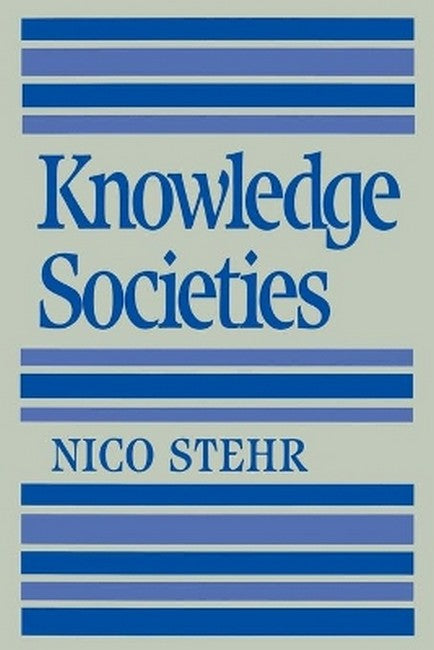In present-day societies, knowledge is not only the key to the world, but the making of the world. In this broad-ranging analysis of the central role that knowledge plays in our life Nico Stehr critically examines the premises of existing social theory and explores the knowledge relations in advanced societies. The result is i significant new synthesis of social theory. The issues addressed in "Knowledge Societies" include: the process of scientization - the penetration of scientific knowledge not only into production but into most spheres of social action; the transformation of the political system by increasingly knowledgeable citizens; the rise of specific areas of expertise and changes in corresponding institutions based on the deployment of specialised knowledge; a shift in the nature of societal conflict from struggles about the allocation of income and property to claims and conflict about generalized human needs; the emergence of fragility as a basic attribute of modem social organizations. The author does not argue that the transformations of contemporary societies around knowledge lead to any unilinear pattern of change, or to universal shifts to the advantage of specific social groups. But his argument amply demonstrates that all social theories now need to take account of the changing nature of social relations around knowledge, and defines the parameters within which this analysis should take place. This book will be essential reading for all those interested in social theory, sociology of knowledge and science, and the whole issue of knowledge in the late twentieth century,

